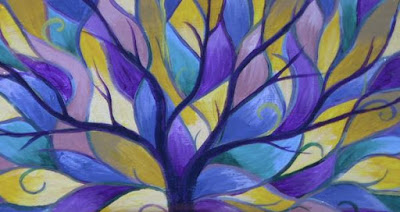Gospel Reading
John 20:19-23; 20:19 When it was evening on that day, the first day of the week, and the doors of the house where the disciples had met were locked for fear of the Jewish leaders, Jesus came and stood among them and said, "Peace be with you."
20:20 After he said this, he showed them his hands and his side. Then the disciples rejoiced when they saw the Lord.
20:21 Jesus said to them again, "Peace be with you. As the Father has sent me, so I send you."
20:22 When he had said this, he breathed on them and said to them, "Receive the Holy Spirit.
20:23 If you forgive the sins of any, they are forgiven them; if you retain the sins of any, they are retained."
John 7:37-39
7:37 On the last day of the festival, the great day, while Jesus was standing there, he cried out, "Let anyone who is thirsty come to me,
7:38 and let the one who believes in me drink. As the scripture has said, 'Out of the believer's heart shall flow rivers of living water.'"
7:39 Now he said this about the Spirit, which believers in him were to receive; for as yet there was no Spirit, because Jesus was not yet glorified.
The Point of Pentecost
While the Acts narrative favors the orderly, detailed and careful accounting of the coming of Holy Spirit, John's Gospel tells a different story.* John surely knew Luke's account, but presents another promise and possibility.
While Acts 2 tells the story in metaphor, "a sound like the rush of a violent wind," or "tongues as of fire" coming upon those gathered, John 20 presents the breath of the risen Christ as the Spirit. Jesus Christ is alive and we experience that through the Holy Spirit. The Holy Spirit is not only the breath of the risen Christ, but also, closer than our next breath!
The Holy Spirit issues forth from the Father (Acts 2) and the Son (John 20). John implies what later became known as the doctrine of the Trinity. The Spirit coming from the Son as well the Father was a source of long and sharp differences between church leaders in Rome and Constantinople, until the Great Schism of 1054 and the formation of The Roman Catholic Church and the Eastern Orthodox Church. **
But the differences between Acts and John are great resources for presenting the whole Gospel of the Holy Spirit. John's Gospel is the result of a full generation of church life beyond Luke-Acts. The Holy Spirit sustains us in our journey, not for a momentary event, but for long endurance in the faith. The walk is one step at a time and is impossible and pointless without closeness and intimacy with Source of life (see reading of Psalm 104) and the Source of the Church.*** This is the depth of insight in John's witness.
Sunday's reading proclaims that walking with Christ cannot be achieved by checking off boxes, attaining goals, being good enough, longer prayers, or what pleasing God involves. Walking with Jesus is possible with the gift and grace, and God- infused joy and love, peace and patience, justice and compassion, the "living waters" of God's people in Jesus Christ.
Acts 2 is an orderly account of God acting in the history of the church. But God and our life with Jesus is not. Life is full of messy decisions and people. Acts 2 is also a look back. Many churches attempt to recreate the Acts - Pentecost with a sound and light show, perhaps foreign languages for added effect. The point of Pentecost is to participate in God's work of re-creation, not to resort to theatre. The reenactment is within us. We are the re-creation of Pentecost in and for the world.
*Only Luke uses "orderly account" to describe his Luke-Acts He uses the term twice in Luke 1, I assume, for emphasis. However, God working in orderly ways is not the point John.
** Rome taught that the Spirit comes from both the Father and Son, or the filioque clause.
***Pentecost is also known as the birthday of the Church.
.jpg)




